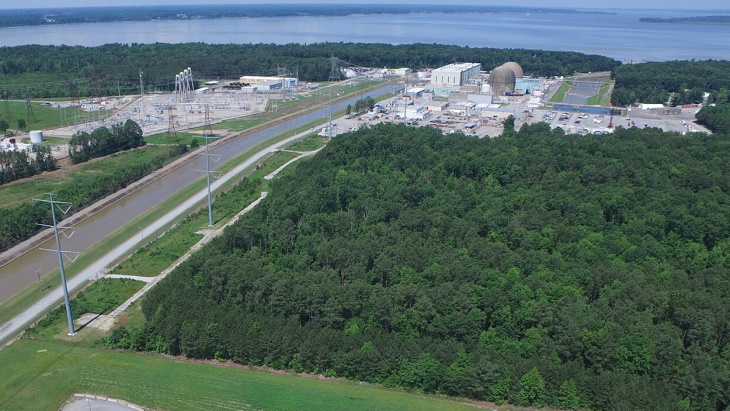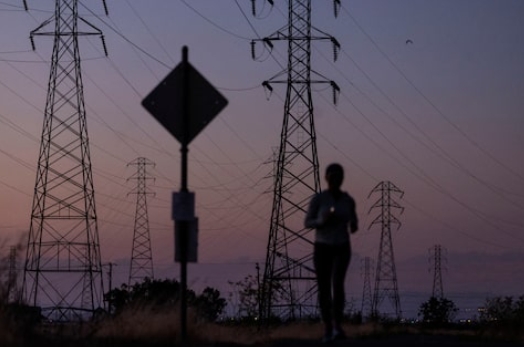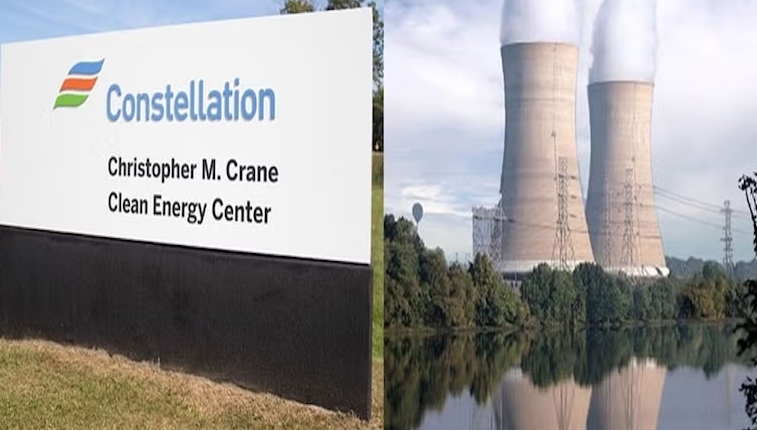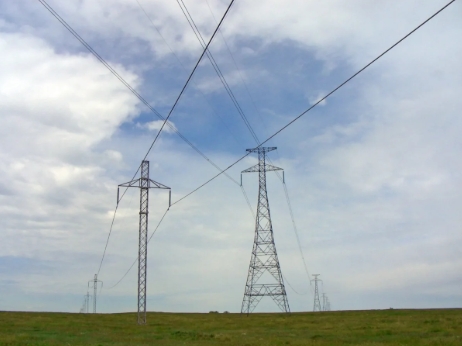If the USA were to shut down its nuclear power plants, the pollution from the coal, gas, and oil that would be used to make up the generation shortfall would result in a worsening of air quality that could cause an additional 5200 pollution-related deaths over a single year, according to a newly published study from the Massachusetts Institute of Technology (MIT).

The Surry nuclear power plant in Virginia (Image: Dominion Energy)
The study - Nuclear power generation phase-outs redistribute US air quality and climate-related mortality risk - was published in Nature Energy on 10 April. In it, the MIT researchers explore how nuclear shut-downs could affect air pollution, climate and health with existing and alternative grid infrastructure. They developed a dispatch model to simulate the emissions of CO2, NOx and SO2 from each generating plant in the USA, feeding these emissions into a chemical transport model to calculate effects on ground-level ozone and fine particulate matter with a diameter of less than 2.5 micrometres (PM2.5).
"Our scenario of removing nuclear power results in compensation by coal, gas and oil, resulting in increases in PM2.5 and ozone that lead to an extra 5,200 annual mortalities," the report notes. This is in addition to premature deaths resulting from climate-related effects from the resulting additional CO2 emissions: "Changes in CO2 emissions lead to an order of magnitude higher mortalities throughout the twenty-first century, incurring USD11-180 billion of damages from 1 year of emissions."
A scenario in which nuclear and coal plants close at the same time "redistributes" health impacts, while one with increased penetration of renewables reduces them. Even taking into account an expected increase in the availability of renewable energy sources, the team found, there would still be a slight increase in air pollution in some parts of the country, resulting in a total of 260 pollution-related deaths over one year.
The researchers found that regions in the eastern USA - where most of the USA's nuclear power plants are found - would see a general worsening of air pollution, as illustrated in this video shared by MIT.
The study also found inequities in exposure to pollution which were persistent across all scenarios, with Black or African American people exposed to the highest relative levels of pollution.
According to MIT News, lead author Lyssa Freese of MIT's Department of Earth, Atmospheric and Planetary Sciences (EAPS) said work had already been done on the impact of the decline of coal use on air quality, but no-one had previously studied the link between air quality and nuclear shutdowns. "This adds one more layer to the environmental health and social impacts equation when you're thinking about nuclear shutdowns, where the conversation often focuses on local risks due to accidents and mining or long-term climate impacts," she said.
Air quality has not up to now been a focus for discussion in the debate about keeping nuclear power plants in operation, according to Noelle Selin, a professor in MIT's Institute for Data, Systems, and Society and EAPS, and one of the study's co-authors. "What we found was that air pollution from fossil fuel plants is so damaging, that anything that increases it, such as a nuclear shutdown, is going to have substantial impacts, and for some people more than others," Selin said.







